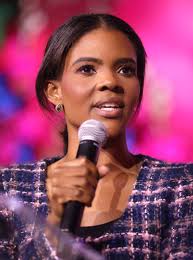The Rise of Candace Owens: A Leading Conservative Voice

Introduction
Candace Owens has emerged as one of the most influential figures in modern conservative politics. Known for her articulate and often provocative takes on social issues, Owens has garnered widespread attention across various media platforms. Her relevance in discussions about race, politics, and personal responsibility has made her a pivotal figure in American conservatism, especially among younger audiences.
Owens’ Background and Career
Born on April 29, 1989, in Stamford, Connecticut, Candace Owens graduated from the University of Rhode Island in 2012. After a brief career in public relations, she gained prominence after launching her YouTube channel in 2016, where she began to share her conservative viewpoints. Her viral video series on Black Lives Matter and a call for a more individualistic approach among African Americans propelled her into the spotlight.
Political Influences and Advocacy
Owens is a prominent supporter of the Republican Party and has served as a spokesperson for Turning Point USA, a conservative nonprofit organization aimed at promoting conservative values on college campuses. Her book, “Blackout: How Black America Can Make Its Second Escape from the Democratic Plantation,” was published in 2020, further solidifying her status as an influential conservative voice. In it, she argues for a reevaluation of the historical relationship between Black communities and the Democratic Party.
Recent Developments
In 2023, Owens continued to make headlines with her outspoken views on topics such as the COVID-19 pandemic response, critical race theory, and the role of social media in shaping public opinion. Her appearances on news channels and conservative podcasts have made her a sought-after commentator, while her engagements on social media platforms have attracted millions of followers. Some have praised her for challenging mainstream narratives, while critics argue that she often promotes divisive rhetoric.
Conclusion
Candace Owens remains a controversial and influential figure in today’s political discourse. Her ability to connect with younger audiences and her firm stance on various issues have made her a significant voice in the conservative movement. As we head toward future elections, her role in shaping conservative ideology and mobilizing support within the African American community may play a crucial part in the Republican Party’s strategies. Readers should watch closely as her career unfolds and continues to provoke discussions around race, identity, and politics in America.





